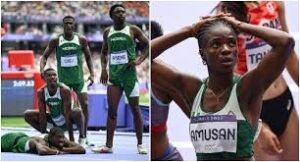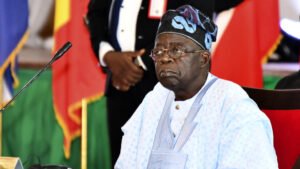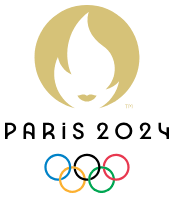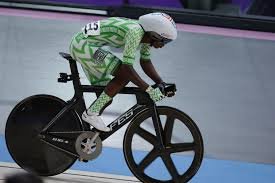Weeks after the Paris 2024 Olympics ended issues arising from the dismal outings of the Nigerian troupe have refused die down, as critics, stakeholders have continued to express vexations over the apparent disappointment at the lacklustre performances. Juliet Jacob revisits the key factors behind Nigeria’s poor outcomes, ranging from preparations to fundings and talent harvesting processes, among others. And what went wrong?
A Nation’s Olympic Wobbly Dreams Shattered



Nigeria’s performance at the 2024 Summer Olympics in Paris was nothing short of disappointing. Despite the country’s status as a powerhouse in African sports, particularly after finishing second at the African Games in Ghana earlier in the year, Nigeria left Paris empty-handed. This marked the eighth time the nation has returned from the Olympics without a single medal, raising serious questions about the effectiveness of the heavy financial investments made by the governments. The present government under President Bola Tinubu had approved over NGN 12 billion (USD 7.5 million) for the country’s participation, yet the outcome was far from what many had hoped for.
A Costly Investment in a Time of Poverty
The Nigerian government’s allocation of NGN 12 billion for the Olympics comes at a time when the country is grappling with widespread poverty, hunger, and inadequate infrastructure. With over 220 million people, Nigeria remains one of the poorest countries in the world, where a significant portion of the population lives below the poverty line. The decision to spend such a large sum on an international sporting event has been met with outrage from citizens who are struggling to make ends meet.
Peter Obi, a former Labour Party presidential candidate, expressed his frustration on social media, questioning the rationale behind such a hefty expenditure in the face of glaring poverty. “How do we justify spending billions on an event when our people are hungry, and our infrastructure is in shambles?” he asked, highlighting the disconnect between the government’s priorities and the needs of the people.

Poor Outing at the 2024 Olympics: A Result of Lack of Preparations
Nigeria’s poor performance at the Paris Olympics has been attributed to several factors, with lack of preparation being a major one. Despite having 88 sportsmen and women representing the country, none were able to secure a medal. This dismal outcome has drawn sharp criticism from sports analysts and the general public alike.
One of the most glaring examples of poor preparation was the case of cyclist Ese Ukpeseraye, who revealed that she had to borrow a bicycle from her German colleagues to compete. Such an incident underscores the inadequacies in the country’s sports administration, where athletes are not provided with the necessary resources to compete at the highest level.

In another instance, sprinter Favour Ofili took to social media to accuse the Nigeria Olympic Committee (NOC) and the Athletics Federation of Nigeria (AFN) of failing to enter her for the 100 meters event, a mistake that may have cost Nigeria a potential medal. Despite this setback, Ofili managed to reach the finals in the 200 meters but finished sixth.
Experts have pointed to these incidents as clear indicators of the lack of adequate preparation by the Nigerian government and sports federations. Sports analyst Ayo Ositelu noted, “The government’s failure to invest in proper training and resources for our athletes is evident in the results. We cannot expect to perform well on the global stage when we are not adequately prepared.”
Political Extravagance Amidst National Struggles
While Nigeria’s athletes struggled to compete with limited resources, Nigerian politicians were criticized for their lavish lifestyles, including their presence at the Olympics. Reports emerged that several Nigerian politicians traveled to Paris to watch the Games, with little to no impact on the country’s performance or international reputation.
The contrast between the lavish spending on the Olympics and the dire conditions at home is stark. Nigeria is a country plagued by inadequate health facilities, poor infrastructure, and widespread poverty. Yet, the government chose to allocate NGN 12 billion to an event that yielded no tangible results for the nation.
Critics have called out the government for its misplaced priorities, arguing that the funds could have been better spent addressing the pressing needs of the population. “It’s a slap in the face of every Nigerian struggling to survive,” said social commentator Ebuka Obi-Uchendu. “While our athletes were left to fend for themselves, our politicians were busy enjoying the perks of international travel.”

Conclusion: A Call for Accountability and Reform
Nigeria’s disastrous outing at the 2024 Paris Olympics has highlighted the need for a complete overhaul of the country’s sports administration and a re-evaluation of government spending priorities. The NGN 12 billion investment in the Olympics, at a time when millions of Nigerians are living in poverty, has sparked widespread criticism and calls for greater accountability.
As the nation looks ahead to the 2024 Summer Paralympics, there is hope that Nigeria can redeem itself on the global stage. However, this will require a concerted effort from the government to prioritize the welfare of its athletes and citizens over political extravagance.
In the words of the Minister of Sports Development, Senator John Enoh, “We must set our standards to scrutinize what motivates those vying to run the federations and get only the best hands. This call for reform aims to enhance the leadership and effectiveness of Nigeria’s sports federations, paving the way for improved performance on the global stage.”
Only time will tell if these reforms will translate into real change, but for now, the disappointment of the 2024 Olympics serves as a sobering reminder of the work that still needs to be done.



